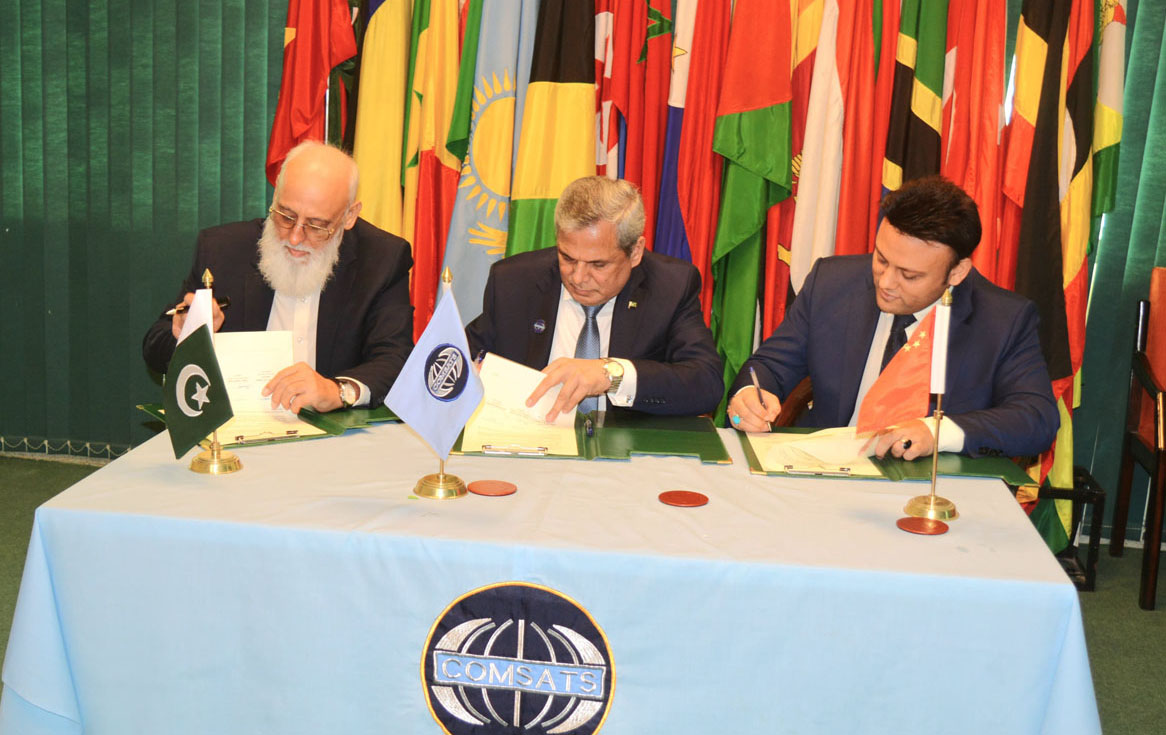The COMSATS Institute of Information Technology (CIIT) organized the 2nd South Asian International Conference – SAICON 2010 – under the auspices of ‘Academy for Global Business Advancement’ (South Asian Chapter), on July 21-23, 2010, at the scenic hill resort of Bhurban, Pakistan. The theme of this international event was ‘Nurturing Innovation, Entrepreneurship, Investments and Public-private Partnership – in Global Environment’. Over 250 delegates from Pakistani universities, business schools, industries and government organizations, including 25 from abroad, participated in this three-day conference.
Parallel sessions were held under 8 working groups to accom![]() modate 116 papers, spanning a wide spectrum of topics, such as Business Internationalization, Finance and Accounting, Marketing and Consumer Behaviour, Social Entrepreneurship, Innovation and Creating e-Business, Human Resource Development, Corporate Social Responsibility, etc. The outcomes of the discussions and papers presented will be distributed to all stakeholders.
modate 116 papers, spanning a wide spectrum of topics, such as Business Internationalization, Finance and Accounting, Marketing and Consumer Behaviour, Social Entrepreneurship, Innovation and Creating e-Business, Human Resource Development, Corporate Social Responsibility, etc. The outcomes of the discussions and papers presented will be distributed to all stakeholders.
The panel discussion in the closing function, chaired by the Executive Director COMSATS, focused on the key conclusions of the deliberations. Four renowned scholars constituting the panel gave summaries and indicated the way forward for development of countries in the region, in general, and for Pakistan, in particular.
Prof. Dr. Said Elfakhani (Saginaw Valley State University, Michigan, USA) noted that South Asia is in general lagging behind in growth rates. He identified the culture of tax evasion, lack of collectivity and the poor educational planning (training as per market requirements) as the sources of stunted growth. Prof. James Forman-Peck (Cardiff Business School, Scotland, U.K) considered that the key issue was proper regulations governing all spheres of economic activity and the institutional infrastructure to enforce rules and conduct oversight. Prof. Ahmad M. Khalid (Bond University, Australia) stressed the need to target two sectors, Health and Education, as central pillars of reforms to achieve rapid development. The financial-sector reforms are necessary but if implementation is weak, the reforms do not yield desired results.
Dr. Bahuddin G. Mujtaba (Nova Southeastern University, USA) considered investment in R&D, nurturing of creativity and celebrating success as the ingredients that invigorate society to achieve economic progress.
Dr. Qureshi lauded the diligence and commitment of the organization committee, Department of Management Sciences, CIIT, under the leadership of Dr. ![]() Qaisar Abbas, and support from Prof. Zafar U. Ahmad (Fahad Bin Sultan University, Saudi Arabia) and senior Professors from different Universities of Pakistan & abroad for holding the conference with high standards of organization. The young faculty and students found this international conference highly educational for their future careers.
Qaisar Abbas, and support from Prof. Zafar U. Ahmad (Fahad Bin Sultan University, Saudi Arabia) and senior Professors from different Universities of Pakistan & abroad for holding the conference with high standards of organization. The young faculty and students found this international conference highly educational for their future careers.
Speaking in the closing ceremony, Dr. Mukhtar Ahmad (Member Planning, Higher Education Commission of Pakistan) called upon all participants to play their role in nation-building, un-deterred by the currently prevailing challenges and short-comings of the societies we live in. He opined that the change will come, but each one of us will have to take the burden as the pathbreaker in our individual careers.
The Chief Guest, Dr. Azam Khan Swati, Minister for Science and Technology, Government of Pakistan, acknowledged that the Government has to do more in order to bring about fundamental changes in our approach towards development. The sectors that are known to transform societies and bring about sustainable development are education, in general, and Science and Technology, in particular. Unfortunately, these are the very sectors that are under-funded and ill-planned. He assured the participants that he will continue a vigorous campaign in public and in the cabinet to create awareness about the need to invest heavily in human resource development, to create a culture of honesty, transparency and rule of law, and to build institutions that could ultimately benefit common people.





